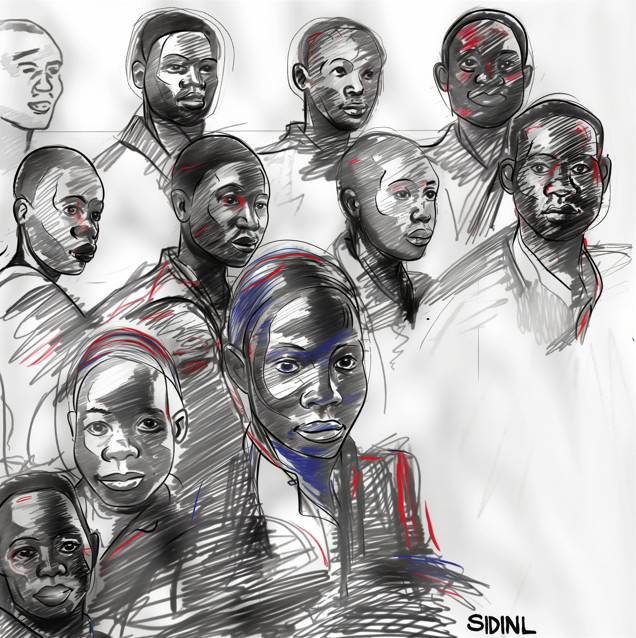Inversion Strategies
Since 2022, the SIDINL Newsletters initiative has embraced a significant shift, where local curators from Europe have started presenting their own newsletters to an African audience. This reversal of roles changes the conventional power balance and provides a fresh perspective on global issues. By asking African audiences for solutions, this approach leverages African expertise and insights to address challenges in Europe. This section explores the inversion strategies of this initiative.
Reversing Conventional Power Dynamics
The traditional model of Western humanitarianism involves Western experts offering solutions to African problems. The SIDINL Newsletters initiative attempts to disrupt this dynamic by facilitating a reverse relationship, where European curators seek advice and solutions from African audiences. This inversion strategy not only empowers African voices but also fosters a more equitable and collaborative global dialogue.
Example
European newsletters from various sectors and regions have shared their struggles with public health crises, looking to African experiences with epidemic management. Nigerian health experts, who have dealt with outbreaks such as Ebola, provided innovative strategies for community health and disease prevention. These solutions can be instrumental in shaping public health responses in Europe, demonstrating the value of African expertise in addressing global health challenges.
Leveraging African Expertise
African countries have developed unique and effective solutions to various challenges that can be applied globally. The SIDINL Newsletters provide a platform for sharing these solutions, emphasizing the value of African expertise.
Example
In the UK, newsletters have sought advice on integrating multicultural education into the school curriculum. African educators shared their experiences with inclusive education practices that accommodate diverse learning styles and cultural backgrounds. These insights have helped some UK educators develop more comprehensive and culturally sensitive educational programs, promoting tolerance and understanding among students.
Addressing European Challenges with African Solutions
The newsletters facilitate the identification of European challenges that can benefit from African solutions, promoting a reverse flow of knowledge and expertise.
Examples
German newsletters reported on issues related to social fragmentation and the integration of diverse communities. African social actors provided guidance on fostering empathy, mutual support, and collective well-being with the Ubuntu philosophy. These principles can be incorporated into community-building initiatives in Germany, promoting social cohesion and reducing tensions between different cultural groups.
In Italy, newsletters discussed challenges related to sustainable agriculture and food security. African agricultural experts, known for their work with drought-resistant crops and sustainable farming techniques, provided insights on improving soil management and crop diversity. These practices have been adapted to enhance the sustainability of Italian agriculture, contributing to greater food security and environmental resilience.
Innovative Cross-Cultural Exchanges
The reverse relationship fostered by the SIDINL Newsletters has led to innovative cross-cultural exchanges, where European curators present their issues and receive African solutions. This approach challenges traditional power dynamics and promotes a more balanced and reciprocal flow of knowledge.
Examples
In Spain, newsletters reported on challenges related to water management and conservation. African experts, particularly from countries with experience in managing water scarcity, provided insights into sustainable water practices and technologies. These recommendations have informed water management policies in Spain, contributing to more effective and sustainable use of water resources.
Portuguese newsletters discussed the need for effective climate action and environmental sustainability. African environmental actors shared their experiences with community-led conservation initiatives, such as those in the Congo Basin, where local communities play a crucial role in forest management and biodiversity conservation. These strategies have inspired similar community-led conservation efforts in Portugal, promoting sustainable practices and enhancing local resilience to climate change.
Empowering African Voices
By seeking solutions from African experts, the SIDINL Newsletters initiative empowers African voices and recognizes their valuable contributions to global issues. This approach not only validates African expertise but also promotes a more inclusive and equitable global dialogue. In conclusion, the inversion strategies of the SIDINL Newsletters initiative have transformed traditional power dynamics by allowing European curators to seek advice and solutions from African audiences. This reverse relationship fosters a more equitable exchange of knowledge and expertise, empowering African voices and promoting a collaborative approach to global challenges. Through these innovative cross-cultural exchanges, the initiative highlights the potential of African solutions to address diverse issues in Europe, fostering mutual respect and understanding.
